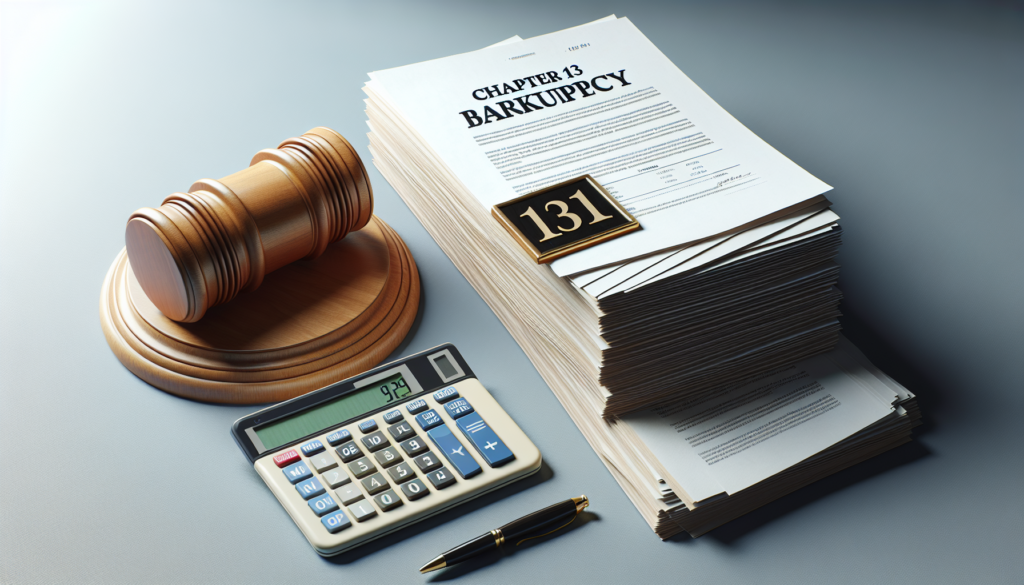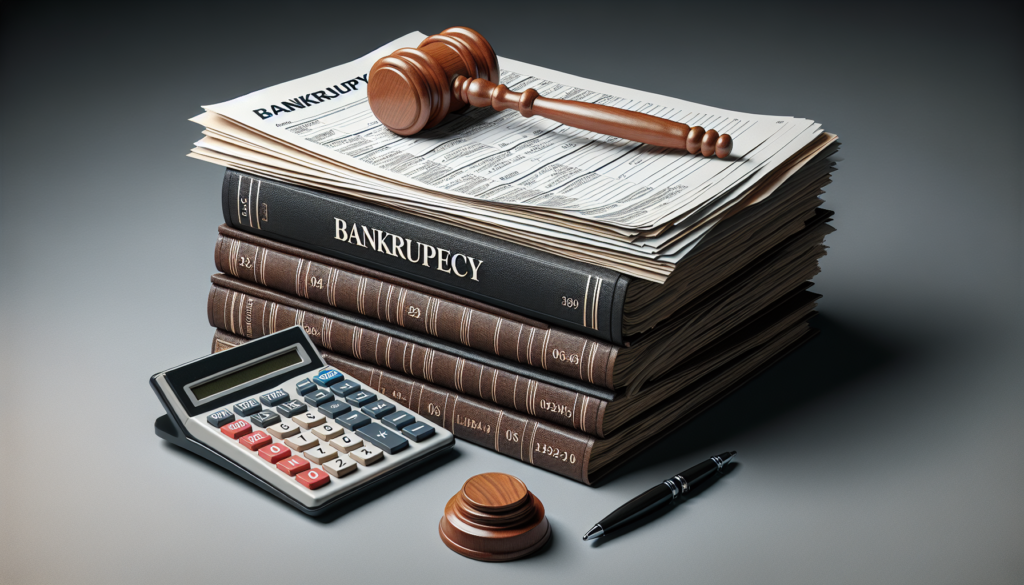
When facing overwhelming financial distress and insolvency, individuals may seek relief through the legal process of bankruptcy. A bankruptcy attorney plays a crucial role in navigating the complex Chapter 7 or Chapter 13 bankruptcy filing for debt discharge.
It is important to consider key factors such as choosing the right attorney, proper documentation, and exploring alternative options for managing credit card debt before making a decision.
Click here to learn more about: file7file13.com
Hiring a Bankruptcy Attorney
Navigating the legal process during times of financial hardship is a complex and daunting task. Hiring a bankruptcy attorney can provide you with the necessary guidance and support to navigate through liquidation seamlessly.
Researching different types of bankruptcy lawyers available is crucial for finding the right fit for your case.
Seeking recommendations from friends, family, and professionals can also assist in your search for a lawyer specializing in debt restructuring.
Interviewing potential attorneys allows you to assess their experience and track record in handling bankruptcy cases effectively. Discussing fees and payment options upfront is important to avoid any surprises during debt settlement.
Ensuring your attorney is knowledgeable about the legal process can provide you with the necessary guidance for debt forgiveness.
Debt Relief Options
When faced with a challenging financial situation, it is crucial to explore the various options available to manage debt effectively.
Exploring alternatives to bankruptcy can offer individuals a chance to avoid the long-term consequences of a financial crisis.
Collaborating with financial professionals to create a consolidation loan or structured repayment plan can significantly help in reducing debt burden.
Taking proactive steps when dealing with overwhelming debt, such as negotiating with creditors or seeking assistance from a debt relief program, can lead to a more stable financial future.
Considering a debt forgiveness program may be a viable option for individuals looking to eliminate debt and make a fresh start financially.
Managing Debt Effectively
- Exploring alternatives to bankruptcy can prevent long-term financial consequences.
- Collaborating with financial professionals for a consolidation loan can reduce debt burden significantly.
- Negotiating with creditors or seeking assistance from debt relief programs can lead to a more stable financial future.
- Considering a debt forgiveness program can help individuals eliminate debt and start fresh financially.
Understanding Insolvency Laws
Navigating through financial challenges can be a daunting task, especially when considering the complexities of legal implications that come with it. When facing insolvency, one must comprehend the laws governing the process and the roles of key players involved in debt resolution.
These laws provide a structured framework for individuals or businesses to eliminate financial burdens and pave the way for recovery.
Understanding the various forms of insolvency and the importance of a restructuring plan is essential in the journey towards financial stability.
Debt repayment plays a critical role in this resolution process, impacting one’s credit score significantly. Seeking consultation from legal experts can provide valuable help in navigating the intricate landscape of insolvency laws and ensuring a smoother path towards financial recovery.
Chapter 7 Bankruptcy Basics
Chapter 7 Bankruptcy Basics: Understanding the liquidation process in Chapter 7 bankruptcy is crucial for individuals facing financial difficulties. This procedure involves the sale of assets to repay creditors, overseen by a court-appointed trustee.
The trustee evaluates which properties can be sold to settle debts, ensuring a fair distribution of funds among creditors.
Upon completion of the liquidation proceedings, debtors may be granted a discharge of debts, offering a fresh start financially.
It is essential for individuals to adhere to sound financial management strategies post-bankruptcy to secure a stable financial future and avoid future financial challenges.
| Liquidation Process in Chapter 7 Bankruptcy | Debt Discharge and Financial Management |
|---|---|
| Assets are sold to repay creditors | Debtors may be granted a discharge of debts |
| Court-appointed trustee oversees the sale of properties | Sound financial management strategies post-bankruptcy are essential |
| Funds are distributed among creditors | Securing a stable financial future is crucial |
Chapter 13 Bankruptcy Explained
Understanding the intricate process of Chapter 13 Bankruptcy can be quite daunting, especially when considering the necessary aspect of debt repayment planning. With the supervision of a knowledgeable bankruptcy lawyer, individuals can navigate through this legal process with confidence and clarity.
In Chapter 13 Bankruptcy, debtors are required to develop a repayment plan that aligns with their financial situation, as approved by the court.
This personalized plan allows debtors to gradually settle their debts over a specific period, typically ranging from three to five years.
By working closely with a trustee and adhering to the guidelines set by the court, individuals can pave a realistic path towards financial recovery and debt relief
Debt Discharge Process
Embarking on the journey towards financial freedom requires a clear understanding of the debt discharge process. Seeking relief from overwhelming financial obligations through legally eliminating debt can pave the way towards stability and a fresh start.
It is crucial to follow the essential steps in consulting with a representative, considering bankruptcy if necessary, and collaborating with a debt settlement company.
Each step plays a vital role in guiding individuals towards long-term support and planning for financial freedom.
The benefits of completing the debt discharge process include reduced financial stress, improved credit score, and the opportunity for a fresh start. This process offers the necessary support and planning to secure stability and long-term freedom in financial matters.
Benefits of the Debt Discharge Process
- Reduced financial stress
- Improved credit score
- Opportunity for a fresh start
- Long-term support and planning for financial freedom
Debt Relief Attorney: Why Hiring a Bankruptcy Lawyer is Essential



Get a Free Bankruptcy Case Evaluation